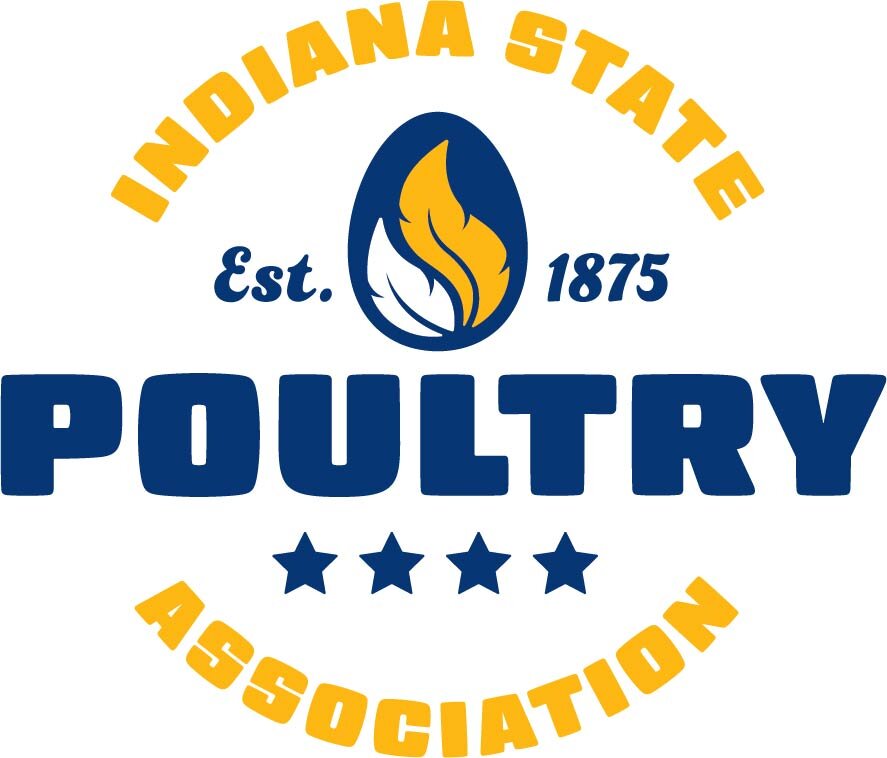WHAT IS THE NATIONAL POULTRY IMPROVEMENT PLAN?
The National Poultry Improvement Plan (NPIP) began in 1935 to coordinate state programs aimed at the elimination of pullorum disease from commercial poultry. The National NPIP Office is located in Conyers, Georgia in the heart of poultry country. Thier website is www.poultryimprovement.org.
In addition to commercial poultry, the NPIP covers the following three groups:
WATERFOWL - Domesticated Fowl that normally swim, such as ducks and geese.
EXHIBITION POULTRY - Domesticated fowl which are bred for the combined purposes of meat or egg production and competitive showing.
GAME BIRDS - Domesticated fowl such as pheasant, partridges, quail, grouse and guineas, but not doves and pigeons.
CLICK HERE TO READ AN ARTICLE ON THE HISTORY OF THE NPIP.
CLICK HERE TO READ “OVERVIEW OF THE NATIONAL POULTRY IMPROVEMENT PLAN”.
CLICK HERE TO READ THE NPIP REQUIREMENTS FOR EXHIBITION POULTRY IN INDIANA.
A COOPERATIVE PROGRAM
The NPIP is a cooperative Industry-State-Federal program through which new technology can be effectively applied for the improvement of poultry and poultry products throughout the country.
NPIP PROVISIONS
The provisions (i.e. rules) of the NPIP are developed jointly by industry members, state and federal officials. These provisions establish standards for the evaluation of poultry breeding stock and hatchery products with respect to freedom from egg-transmitted and hatchery-disseminated disease. A Conference is held every two years where industry members, state officials and federal officials gather to discuss changes to the NPIP provisions. NPIP Provisions are held within the Code of Federal Regulations, split between parts 145, 146, 147, and 56. To read through each section, click through the below links.
PART 145 - NPIP FOR BREEDING POULTRY
PART 146 - NPIP FOR COMMERCIAL POULTRY
PART 147 - AUXILIARY PROVISIONS ON NPIP
PART 56 - CONTROL OF H5/H7 LOW PATHOGENIC AVIAN INFLUENZA
WHY BECOME AN NPIP EXHIBITION PARTICIPANT IN INDIANA?
The benefits of being of becoming an Indiana NPIP Exhibition Participant are:
Your flock will be recognized as a participating member of the National Poultry Improvement Plan. Your flock will be listed on the National NPIP website (www.poultryimprovement.org). The website lists all participant hatcheries, dealers, and independent flocks in the United States.
Your flock will be given an approval number which may be used on shipping labels, certificates, invoices, and other documents for identification purposes.
You can provide your NPIP Approval Number as proof for Pullorum Typhoid (PT) testing when attending an exhibition, county fair, or state fair event. When traveling to another state always check with their NPIP Official State Agency to see if they have additional movement requirements.
As Exhibition Member your poultry is only tested once a year for PT instead of needing to test them before each event they are traveling to..
Our Poultry Health Specialist at the ISPA will send you relevant poultry health emails throughout the year as well as keep you up-to-date on any emergency disease issues happening around the state.
CLICK HERE to read a flyer on Indiana's NPIP Exhibition Participant Program.
HOW TO BECOME AN INDIANA NPIP EXHIBITION PARTICIPANT IN INDIANA
You can become an Indiana NPIP Exhibition Participant in two simple steps.
STEP ONE: Complete the INDIANA NPIP EXHIBITION PARTICIPANT APPLICATION online by clicking on the button below and completing the form that pops up.
STEP TWO: Submit a completed NPIP VS 9-2 Form completed by a Certified Indiana NPIP Blood Tester.
The completed VS Form 9-2 should be mailed to the Indiana Board of Animal Health (BOAH) Office (Address: 1202 East 38th Street, Indianapolis, IN 46205).
You can also submit the VS Form 9-2 electronically by scanning and emailing it to npip@boah.in.gov. Be sure to note that the scanned VS Form 9-2 is for Indiana NPIP Exhibition Participation.
A CERTIFIED NPIP BLOOD TESTER will need to test 10% of your flock, with a minimum of 30 birds and up to a maximum of 300 birds. The tested birds should be a representative sample of your flock, based on division of male vs female poultry, as well as poultry type. Poultry tested will ideally be between 16 - 24 weeks old.
Need to locate a Certified Blood Tester? CLICK HERE to search through a current list of Certified Blood Testers.

